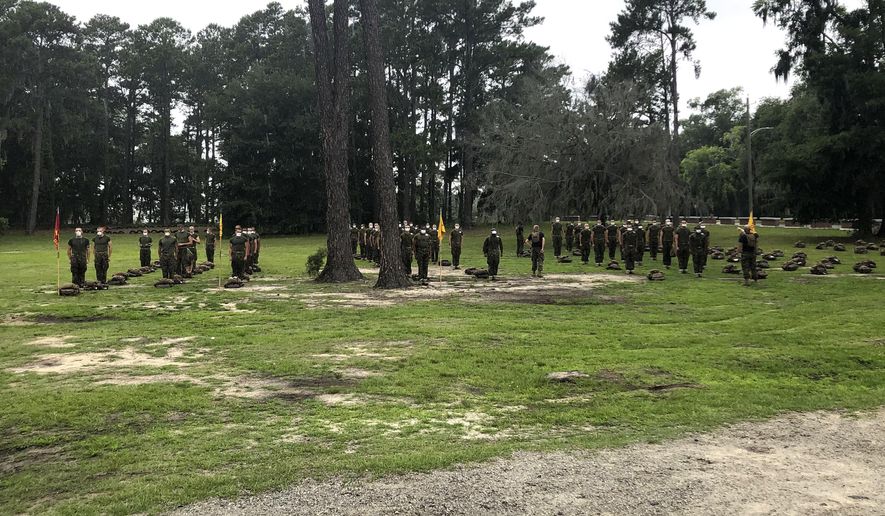For decades, the Marine Corps personnel system has treated every Marine as a round peg and every assignment as a round hole.
But It’s time to realize that Marines and assignments come in different shapes and sizes, Marine Corps Commandant David Berger said this week, rolling out what is a significant overhaul of how the service recruits new Marines and keeps the ones already in uniform around for another hitch.
“Talent Management 2030,” the first major update to the service’s personnel system in decades, will implement new models for attracting new recruits and offering those in Corps greater career flexibility. To compete at peak effectiveness against potential adversaries like China and Russia, the Marine Corps must bring the right people with the right skills into the service, said Gen. Berger.
“The most important element of this report is the individual Marine,” the general said.
The challenge starts at the very beginning.
The report found that 75% of Marines are discharged after they complete their first tour in uniform, not to mention thousands of Marines who are separated even before their enlistment is finished. Gen. Berger said the Marine Corps must do a better job of determining who is suited for military service.
Rather than relying solely on standard tests such as the Armed Services Vocational Aptitude Battery (ASVAB), the Marine Corps leadership should take into account a variety of factors, including career interests, talents, personal and intellectual strengths, and experience, Gen. Berger said.
The shift “will enable us to better harness and develop the unique skills and strengths of our Marines, improve the importance of our units in competition and combat and ensure that we remain ’most ready when the nation is least ready,’ today and into the future,” Gen. Berger said.
In the past, the Marine Corps has had less of an interest in keeping young troops in the service after their first enlistment, a personnel philosophy known as “recruit and replace” while other services have practiced “invest and retain” and focused on re-enlistments. Gen. Berger said he would rather see a Marine Corps rifle squad composed of second-tour sergeants rather than novice privates.
“Today we are out of balance, placing too much emphasis on recruiting new personnel to maintain end strength and too little emphasis on identifying and retaining the most talented individuals already in our ranks,” Gen. Berger said.
The Marine Corps relies on a personnel system that was designed in the aftermath of World War II, one Corps leaders say is no longer suited to the requirements of the modern force. These days, recruits are usually assigned to career fields depending on which slots need to be filled at a given time. The new system will do a better job of aligning the talent of individual Marines with the needs of the service to maximize the performance of both.
The Marines also need a better way for rapidly recruiting mature, seasoned experts. Gen. Berger said the service can no longer afford to spend years and decades training and re-training technical leaders, especially given the pace of technological change.
“A Marine Corps that matches Marines’ talents to their duties will perform at a higher level in competition and combat,” Gen. Berger said.
• Mike Glenn can be reached at mglenn@washingtontimes.com.




Please read our comment policy before commenting.